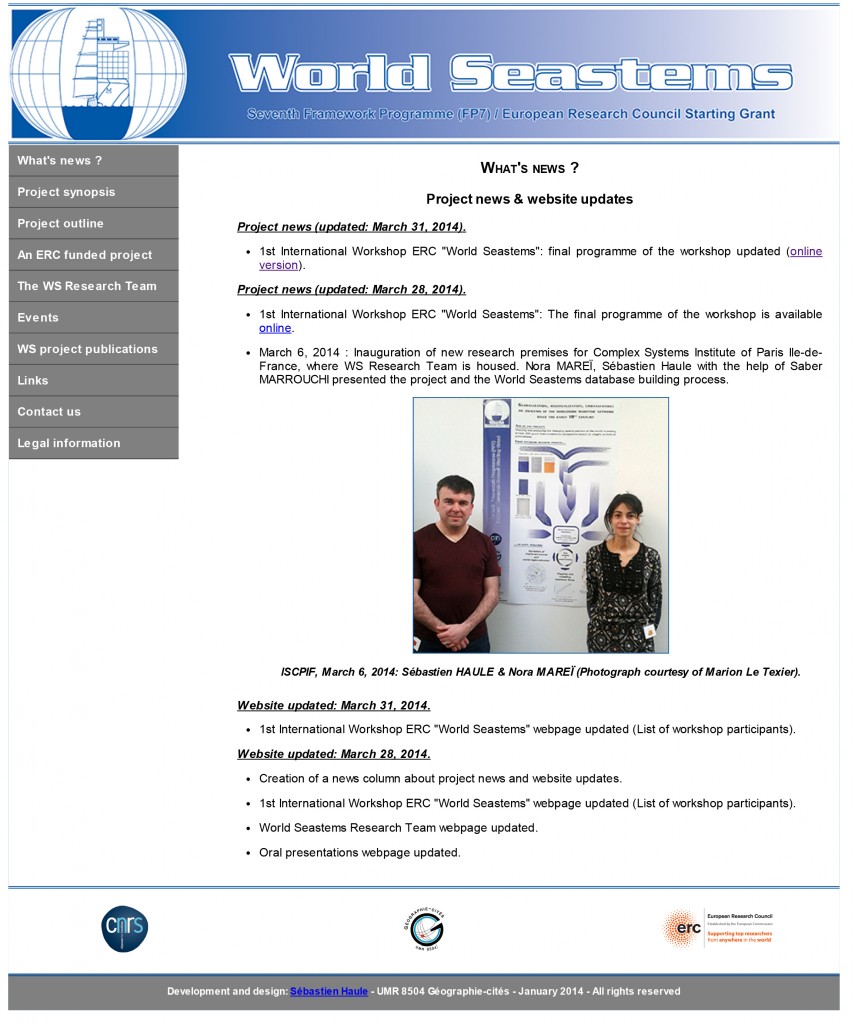International Workshop ERC ”World Seastems”
Maritime Networks in Space and Time
Institute of Complex Systems, Paris & Ile-de-France
16th -18th June 2014
The World Seastems project aims to map and to analyze the changing spatial pattern of the world economy across 300 years from a maritime perspective. It will exploit untapped vessel movement data on a world scale since 1734, date of the first publication of Lloyd’s List. Such data offer disaggregated information on weekly inter-port flows with detailed descriptions of vessels as well as their dates of departure and arrival at world’s ports. Despite the vital importance of maritime transport for economic development and international trade, no research has been done on the long-term evolution of the global maritime network.
In a multidisciplinary fashion, the project questions both the contribution and the resilience of port activities and shipping routes to the transformations of the world system and economy from the local level to the global level. It will provide novel results about world systems theory, network theory, and location theory.
This international workshop on maritime flows and networks wishes to gather worldwide scholars and experts from all scientific and disciplinary backgrounds to introduce and discuss their researches on various related issues. This is a multi-disciplinary even which will investigate how maritime flows and networks of any kind can be analyzed in order to answer major industry and wider societal challenges.
Contributions will deal with themes such as:
· ancient and contemporary shipping routes and corridors;
· regionalisation and globalisation dynamics in world maritime trade;
· global production networks and logistics/supply/value/commodity chains;
· multimodal transportation, hinterlands and the land-sea interface;
· port systems, centrality, hubs, maritime ranges and forelands;
· port-city relationships, merchants and intermediaries, urban systems, global cities;
· network security, congestion, disruption, vulnerability, and optimisation;
· network design and routing, port choice and shipping line competition;
· technological change in shipping and port operations, time and cost factors;
· climate change, bioinvasions and environmental sustainability;
· mobility, migrations, cultural exchanges, knowledge diffusion, tourism, voyages and discoveries.
More information on the workshop:
www.world-seastems.cnrs.fr/
The Project “World Seastems” information:
https://cordis.europa.eu/projects/rcn/107041_en.html
